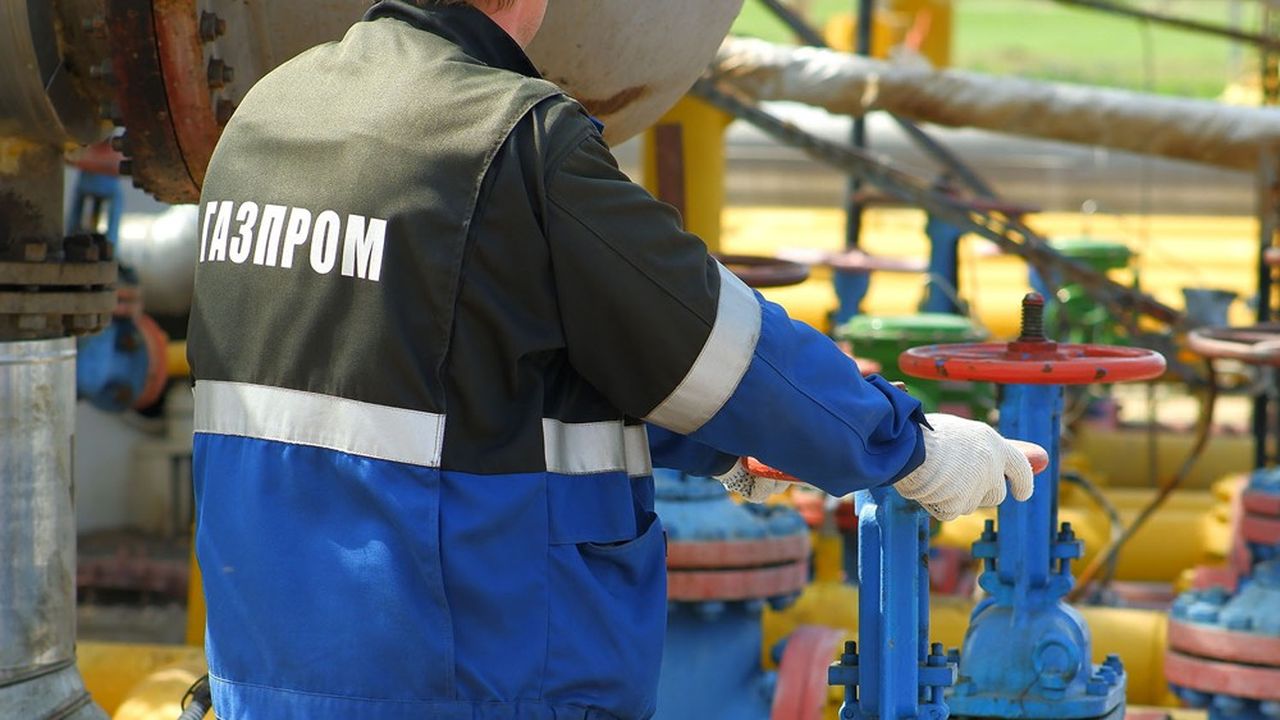
The game of poker could last another three months. After Volodymyr Zelensky made it official that Ukraine would not renew its transit contract with Gazprom, negotiations are well underway to continue supplying European gas demand beyond December 31, the date on which the contract ends.
This was signed in the last days of 2019, for a period of five years, between the Russian operator Gazprom and the Ukrainian public carriers Naftogaz and GTSOU. Despite the outbreak of war and the drastic drop in Russian gas deliveries to Europe, the gas pipeline that connects Russia to Europe via Ukraine continues to be used to deliver several Eastern countries, in particular Austria, Hungary and Slovakia.
Gas flows between Russia and Europe have even increased by 19% since the beginning of the year, compared to 2023. “If these countries have requested more Russian gas while their total consumption is falling, it is because Russian gas is cheaper,” explains Thierry Bros, professor at Sciences Po.
Gazprom on a Wire
An increase in volumes that is reflected in Gazprom’s results. While the Russian giant had ended 2023 with a net loss, it returned to the green in the first six months of 2024 thanks to the increase in flows to Europe and China – before experiencing new difficulties in August with the Ukrainian offensive on Russian territory, which disrupted deliveries on the gas pipeline.
The whole question is therefore whether Europe, which has not taken sanctions against Russian gas, wants – or can – do without it. Gas transiting through Ukraine currently represents 5% of European demand. Doing without these quantities would cause gas prices to soar again, which have already been overheating in recent months, due to the international context and installations undergoing maintenance (the price of the TTF, the Rotterdam index, has increased by more than 50% in six months). The objective currently stated in Europe is to be completely independent of Russian gas by 2027.
Different possible routes
Several options are being considered. Europe has been negotiating for several months with Azerbaijan, which is ready to double its exports to the European Union by 2030. Azeri gas could transit via Turkey, but Turkstream’s capacities are limited and the gas hub pushed by Ankara will take time to set up.
There are also plans to transit Azeri gas through Russia and then Ukraine. The final route would remain the same, so only the source would change. However, Moscow has always opposed this solution and there is little chance that the Kremlin will accept it this time.
However, everyone has an interest in finding an agreement. Starting with Gazprom, which cannot cut itself off from the European market. The Russian company must sell $21 billion worth of gas per quarter, according to Thierry Bros’ estimates, to generate profits. “In 2021, the Kremlin could do without Gazprom’s opinion. The situation is very different today, because there is an employment issue,” he adds. While the Russian economy is in a critical position, a massive wave of layoffs at Gazprom could lead to an explosive social situation.
Gazprom’s situation has become even more complicated with the capture of the Soudja measuring station by the Ukrainian army in early August. A station through which all its exports to Ukraine pass. “Gazprom can no longer trust the system that certifies and details a large part of its exports and therefore its revenues,” writes Sergiy Makogon of the Center for European Policy Analysis in a note. However, the company has not declared the force majeure event, by which it could evade its commitments. Proof, according to him, that it cannot do without this market.
An alternative scenario?
Europe, for its part, is waiting until 2027 for new liquefied natural gas (LNG) capacities in the United States or Qatar to provide room for maneuver for the global market. The surpluses could be used to compensate for the complete shutdown of Russian supplies, but in the meantime, Brussels must find a solution.
Now, another scenario is emerging, pushed by Eastern European countries. They have discussed the formation of a consortium that could recover Russian gas, on its own, at the Russian-Ukrainian border on the Russian side, then reship it to Europe via Ukraine. A meeting was held at the end of last week between Gazprom boss Alexey Miller and Hungarian Foreign Minister Peter Szijjarto.
In this scenario, Ukraine would no longer have a transit contract, the gas would only be “transported” on its territory. As such, kyiv would still receive commissions. The cargo would no longer be Russian, but European. The advantage would then be to keep prices relatively low. And to save face for all the protagonists…





